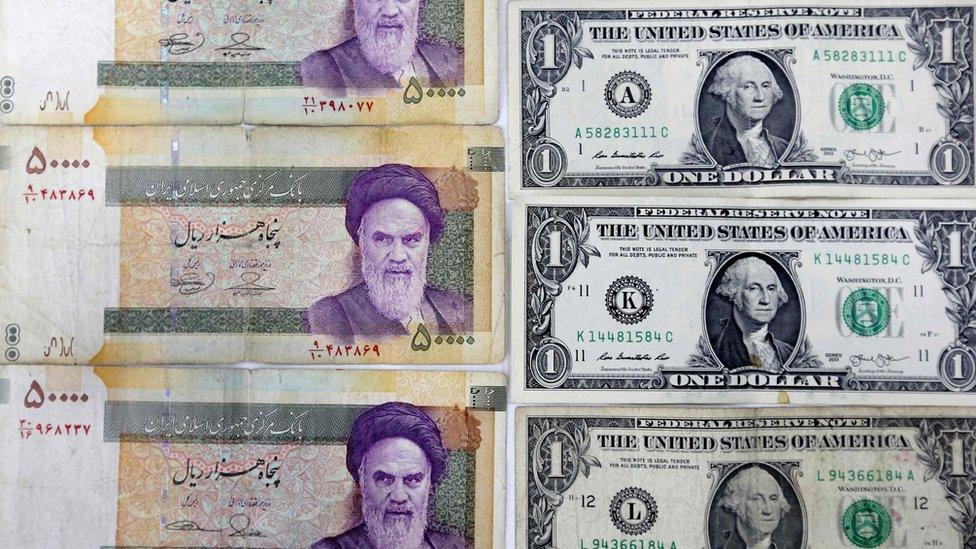Iran sanctions: How Iranians are feeling the impact
- Published
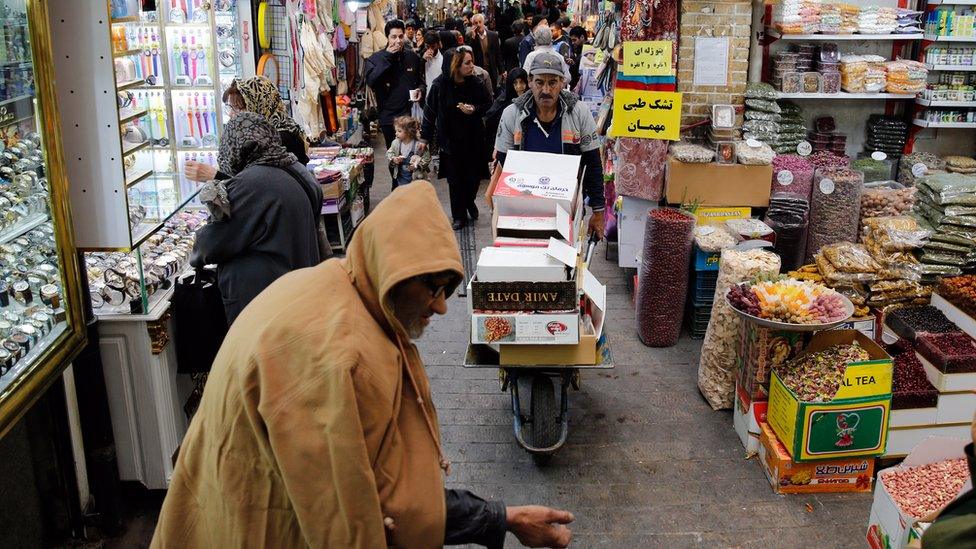
Iranians say the sanctions are pushing up prices of everyday items
Tough sanctions imposed on Iran by the US are designed to target core parts of the Islamic Republic's economy, with the aim of pressuring Tehran into altering its direction and ceasing its "malign" activities.
Earlier this year President Donald Trump pulled the US out of a multilateral agreement that places strict controls on Iran's nuclear programme. The US has now re-imposed tough sanctions on Iran's oil and finance sectors.
But what effect are the sanctions having on the Iranian people?
Some of those suffering from the economic impact of the US measures have shared their concerns with the BBC's Persian Service.

Ayeh, civil servant
Ayeh says that while the sanctions have had a detrimental impact on many professions, especially civil servants, they are worth the pain if they bring about change in the way the country is governed.
"I admit that sanctions influenced our living, especially us," Ayeh says.
"If these sanctions could help in collapsing the Islamic Republic, I'm ready to tolerate them - even longer term whilst my purchasing power gets even more limited. All for the fall of the Islamic Republic, to be replaced by a democratic government."

Mahdis, student in France
A major issue for Iranians studying abroad is the country's banking system, says Mahdis, who adds that the imposed sanctions have made the situation worse.
"Our biggest problem due to the sanctions would be banking. When I started at the university here, it was too hard for me and others to open an account as an Iranian student. Now and because of the sanctions, we are not able to receive money from Iran.
"If a transaction is related to any Iranian outside Iran, it would be blocked or needed to be clarified by documents about the source. It's our biggest issue after providing the money and the exchange rate."

Mohammad, resident of Zahedan, south-east Iran
Mohammad is worried about the impact on retailers and manufacturers as the cost of imported materials increases.
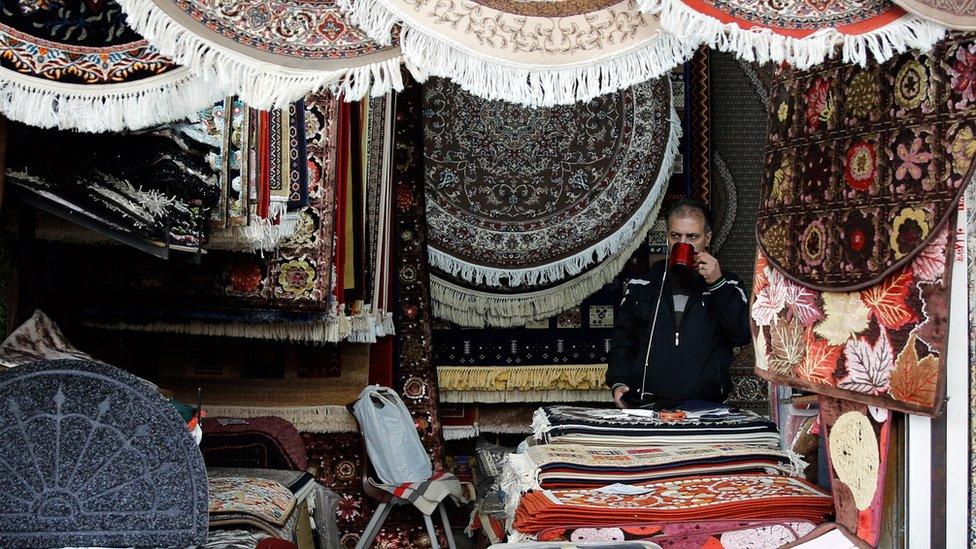
Mohammad worries that shops, like this one in Tehran, will struggle to survive
"Sanctions are hitting us to the bone and the officials are talking cheap.
"We can't produce a piece of cloth ourselves. It is a bad time. Every shop puts up their prices and our purchasing power is null now; zero, absolute null."

Rouzbeh, merchant
Business owners like Rouzbeh, who imports electrical parts from the European Union, are equally worried about their supply chains.
"When the exchange rate goes up, our end-user price would be several times higher. Our European source is not supplying us anymore and we have to get the goods from another route, which increases the costs.
"With such high prices, customers will reject us... so our business is in danger. Our only way to survive is to downsize. But this will [have an] impact on several families [supported by] my employees."

Vahid, would-be house buyer
Vahid echoes the concerns of inflated prices of electrical goods and appliances and says the property market is another area affected by the sanctions, which are making it more difficult to purchase a home.
"As a young man, I worked for years to save some money to apply for a mortgage. But after all this, house prices went up high so with a same amount of money you may find a considerable smaller houses.
"My income is very low, I have no hope. I don't know what to do. Everybody is unhappy but no one complains. People just mutter about the prices and swear.
"I don't know what the plans are for the future."
- Published4 November 2018
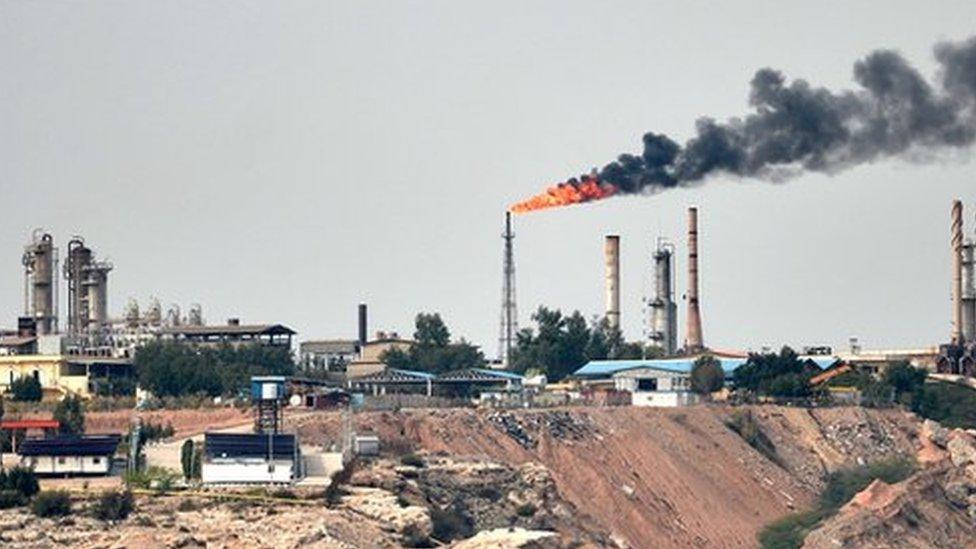
- Published5 November 2018
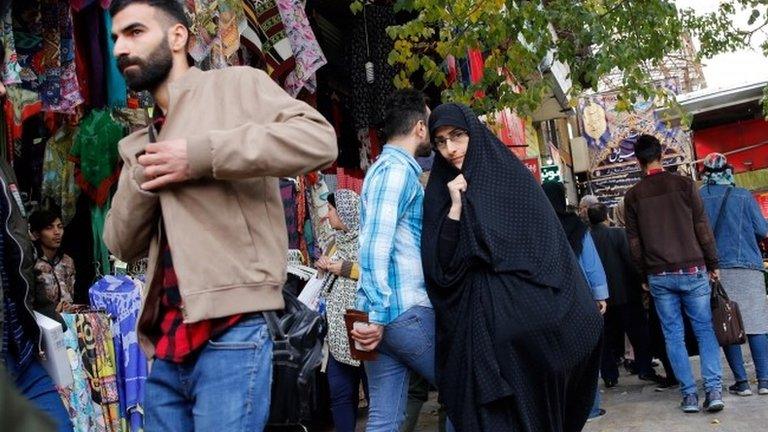
- Published3 November 2018
- Published10 May 2018
